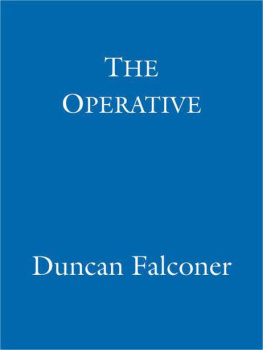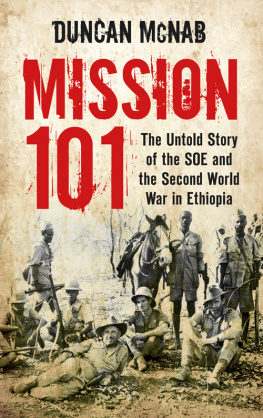The Hijack
DUNCAN FALCONER
Hachette Digital
www.littlebrown.co.uk
Table of Contents
Duncan Falconer is a former member of Britains elite Special Boat Service and 14 Int., Northern Irelands top-secret SAS undercover detachment. After more than a decade of operational service he left the SBS and went into the private security circuit. The Hijack is his second novel. He has also written a non-fiction bestseller, First Into Action, which documents the real-life exploits of the SBS.
Also by Duncan Falconer:
The Hostage
Non-fiction
First Into Action
The Hijack
DUNCAN FALCONER
Hachette Digital
www.littlebrown.co.uk
To my Palestinian friend,
my Israeli friend, my Russian friend
and my dear English friend
Chapter 1
The approach to the English Channel, two hundred miles due south of the Devon coastline, was the furthest from home Abed Abu Omar had ever been in his life. At forty minutes past midnight it was wet and gloomy, but, despite the constant drizzle that had gradually soaked him and his men since they left the Spanish coast the afternoon before, the desert in winter had sometimes been much colder, and he had spent many nights during his younger days without wood to burn or food for his belly.
The cloud was low but allowed visibility in all directions for several miles. The heavy swell that had arrived with the setting of the sun contributed to the conditions, making them perfect for the mission.Allah was indeed smiling down upon the twenty Arabs huddled under their glistening army-surplus ponchos, equally divided between two wooden, open fishing boats tied alongside each other and holding position, their engines silent. The signal-strength indicator on Abeds GPS flickered as it struggled to maintain a link with the navigational satellites through the cloud. The last positive reading indicated they were some five hundred feet off the proposed rendezvous point, but that was not a great concern to him. With this particular target he could afford to be much further from its track without fear of missing it.
The day before, Abed had received a message on his satellite phone informing him the vessel had been sighted passing Gibraltar and the Pillars of Hercules where it entered the Atlantic. Short of a mechanical breakdown, or some other unforeseen incident, it would soon be in sight.
Everything had so far gone to plan: the secret training in the desert camps of Lebanon, Syria and Jordan; access to the various ships owned by sympathisers in the Persian Gulf; the procurement of equipment; the preparation of the two second-hand boats purchased in Spain; and the arrival of the men from various places in Europe, America and the Middle East. The easiest part had been the acquisition of their weapons: not a gun, bullet or explosive device among them. Each man carried a Spanish garrotte, a dagger and a scimitar - the latter imported into Spain as antique artefacts - and they could use each of them with practised skill. For twelve months they had prepared and trained together for this moment, although it did not become a certainty until four months ago. Even now, with the time measured in minutes, there was still a possibility the operation could be aborted.That could happen right up to the point of no return, but Abed believed it was now unlikely. The sheiks, the masters, were as committed to the operation as Abed and his men.
He had not spent all of his short life, twenty-eight years, like so many of his people, waiting for the day he could serve Allah against Zion and its supporters and, if need be, make the ultimate sacrifice for the cause. Nor was his decision finally to take up the sword because he had been born and raised in the largest prison in the world, the Gaza Strip, or because so many people he knew had been killed or incarcerated. They were not the reasons he was here, although they had contributed over the years to the smouldering ember of hatred in his heart that one night burst into flames.
Abeds place of birth was Rafah, a Palestinian refugee camp in the south of Gaza along the border with Egypt. Up until just over a year ago, when he was smuggled out to begin his training for this mission, he had spent his entire life on the narrow strip of land eighteen miles by five that was the most densely populated place on earth. Gaza was surrounded on three sides by a narrow strip of nomans-land, heavily fenced and razor-wired, and watched over by towers manned by lookouts and heavy machine guns. Like the Berlin Wall during the Cold War, or an American high-security prison, it meant death to anyone who tried to penetrate the perimeter day or night. The graveyards were littered with those who had made the attempt. On the map, Gaza looked like a long, crooked rectangle surrounded by desert on three sides and the Mediterranean Sea, constantly patrolled by naval gunboats, F16s and helicopters, on the fourth. Only a privileged few, those who had foreign passports or special permits, were allowed to leave Gaza. Several thousand Palestinians were admitted through the Erez Crossing in the north into Israel on work days as cheap labour for the Israeli factories the other side of the border, but their passes were for twenty-four hours only and did not allow travel beyond the place of work.To be caught outside Gaza without a proper permit meant imprisonment, often for many years.
Abed lived with his mother in a breezeblock terraced hut with dirt floors in all but the main room, which was concrete. This was also the only room with electricity, when it was available. They had their own running-water supply - a tap in the unroofed entrance - and since the Israelis blew up the sewage works at the beginning of the current intifada, the toilet was a bucket behind a curtain at the end of the hallway which was emptied into a large hole in the ground in a derelict house near no-mans-land fifty yards away. Despite the conditions they were well-off compared to most others in the camps. The average income of a refugee family was ten US dollars a month. There was little industry left in Gaza, certainly nowhere near enough to provide work for those who were able. The population was more than a million, half of which was under fifteen years old, and a meagre living was scraped any way one could.
Abed was eleven years old when it occurred to him that his mother regularly received money although she never worked, but it was not until his teens that he asked her where it came from. He loved and revered his mother who had always cherished and cared for her only child, her one reason for living in this vile jail, something she often said to him after kissing his forehead each night before he went to sleep. The day he asked about the money she sat him down and explained how she came by it, also revealing for the first time the truth behind another great mystery of his life: his father. Her story was disappointingly brief for one of such importance, sketchily describing how Abeds father had escaped the country by fishing boat to Cyprus soon after Abed was born, and from there how he made his way to England where he settled to live and work. The plan behind the escape was that one day Abed and his mother would follow him and they would all be together again, away from the poverty and humility of the camps. However, his father had failed to get the necessary paperwork and visas, or perhaps the Israelis had refused to recognise them; Abeds mother was never clear about these kinds of facts and did not seem particularly interested in the smaller details. As far as she was concerned, they were trapped in Gaza, his father was in England, and that was that.
Like most of the older generation in the camps, she had grown to accept her way of life and had long since given up the dream of one day being free to live like those in other countries, in a proper house with utilities, a garden and the freedom to go where she wanted. The camp was over fifty years old, established in 1948, when the first people were forced out of their homes from towns and villages all over Palestine and herded like cattle into dozens of camps in Gaza and the West Bank, to live in crowded tents without proper medical facilities, food or sanitation. In time, they started up basic industries, made bricks and built small huts; these were closely packed together as their numbers grew, and only temporary abodes for they all hoped and believed that one day they would return to the farms and land they had owned for hundreds of generations. Her dreams, like those of most others, had withered with time. She had been born in Rafah camp, in an old British army tent barely a hundred yards from the hut she now lived in and where she knew she would die.Whatever the reasons for Abeds fathers failure to get them out, the fact was they could not leave to join him, and he could not return without having to remain in Gaza for the rest of his life. He had chosen to stay in England where he could earn enough money to send them some each month so that they could live more comfortably than most.
Next page





